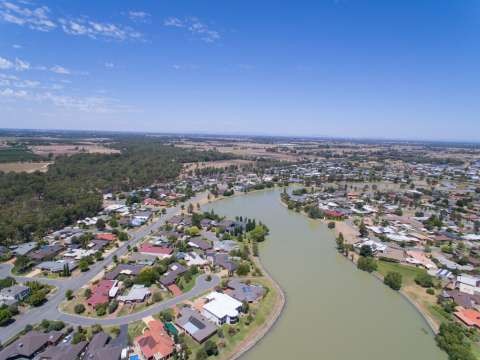Greater Shepparton City Council is warning the public to avoid direct contact with water in Kialla Lakes after detecting high levels of blue-green algae in the first lake.

Summary
- Blue-green algae warning issued for Kialla Lakes by Greater Shepparton City Council.
- Public urged to avoid direct contact with water due to high algae levels; signs posted around the affected area.
- Water users advised to seek alternative water sources; activities at the lakes still permissible excluding direct water contact.
- Safety precautions recommended, including avoiding water contact, washing affected skin immediately, and seeking alternative water for pets; more information available on Goulburn-Murray Water's blue-green algae webpage and via NURSE-ON-CALL on 1300 606 024.
Read below for the full media release.
Blue-green algae occurs naturally in waterbodies and contains toxins that are harmful to humans and animals. Signs of algae contact are skin rashes or itchiness, sore eyes, ears and nose, or if swallowed, nausea or vomiting.
Warning signs have been positioned around the first lake and will remain in place while high levels of blue-green algae are present. Council staff are also conducting water testing.
Kialla Lakes will not be closed to the public.
Council recommends water users from Kialla Lakes seek an alternative water supply. You can still enjoy other activities at Kialla Lakes that do not involve direct contact with the water.
Council recommends:
- People and pets do not enter the water.
- People who come into contact with affected water should wash affected skin immediately in clean cold water.
- Seeking an alternative water supply for pets.
- Do not use affected water for cooking, drinking, washing or showering. Boiling the affected water will not make it safe for these purposes.
- Additional information on blue green algae can be found at Goulburn-Murray Water's blue-green algae webpage to be informed of the risks.
It is not possible to predict how long the algae will remain at high levels. Council is continuing to monitor the situation at Kialla Lakes.
Water supplied by Council is not suitable for human consumption without first being properly treated. Human consumption includes showering, bathing, washing, cooking, ice making and drinking.






